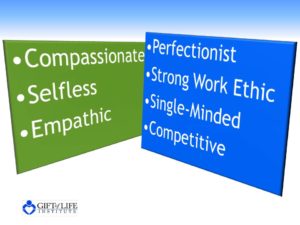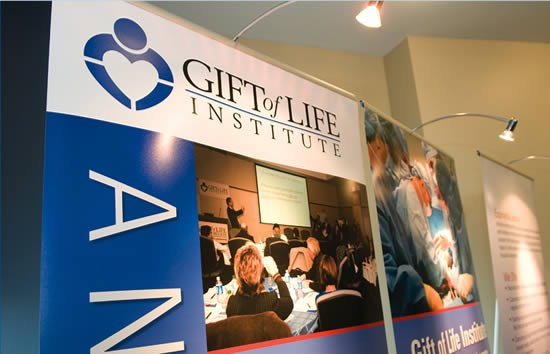Maintaining Professional Boundaries
Professional boundaries are vital in OPO work because we are working on a deep level with vulnerable people. We have a responsibility to them to do things to the best of our ability and to ensure that our help and support does not damage or disenfranchise them.
The personal qualities of those who choose to work in the OPO field—including empathy and dedication—combine with the unpredictable and demanding nature of the work itself to create a perfect storm. Your work can become your life and donor families can become “your” families.
When professionals don’t set appropriate boundaries, potential donor families underestimate their own coping skills and can become dependent. Families who help each other feel empowered, and this is very important to their recovery from acute grief. When they see us give too much, some family members will turn their energies to helping the helpers… clearly not in their best interests. When your relationship with them ends, as it must, this can constitute another loss. Setting professional boundaries can help them avoid this loss. Remember, we represent the worst time of their lives; encouraging families to move beyond those memories and any reliance on us contributes to their healing.
You are touched and changed by your experiences with families. Honoring your contact with them will help to give you closure and allow you to move forward. Take time to think about the deep human connection that often occurs; acknowledge it as an important part of your life as well as the family’s. Consider keeping a small memory book where you can enter the names of the people you’ve worked with, your hopes and wishes for them. And then turn the page, so that you’re ready for the next family. Make time with colleagues to talk about the human dimensions of your cases; consider creating a memorial to families at the office. In presentations, briefly acknowledge the courage and generosity of families, so that they are never only donation cases.
 Finally, you must learn how to build your personal resilience. Identify strategies to deal with stressful events in the moment, including relaxation, stepping away, and seeking support. And perhaps, even more importantly, dedicate time and attention to your own well-being: exercise, healthy nutrition, time with family and friends. Put yourself on your own calendar!
Finally, you must learn how to build your personal resilience. Identify strategies to deal with stressful events in the moment, including relaxation, stepping away, and seeking support. And perhaps, even more importantly, dedicate time and attention to your own well-being: exercise, healthy nutrition, time with family and friends. Put yourself on your own calendar!
Cherry Wise began working in the OPO field in 1997 when she had a private practice as a psychologist and was a professor at the Wright Institute of Professional Psychology in Berkeley. Previously she was director of a non-profit organization that provided services to children and their families in times of bereavement or impending loss.

